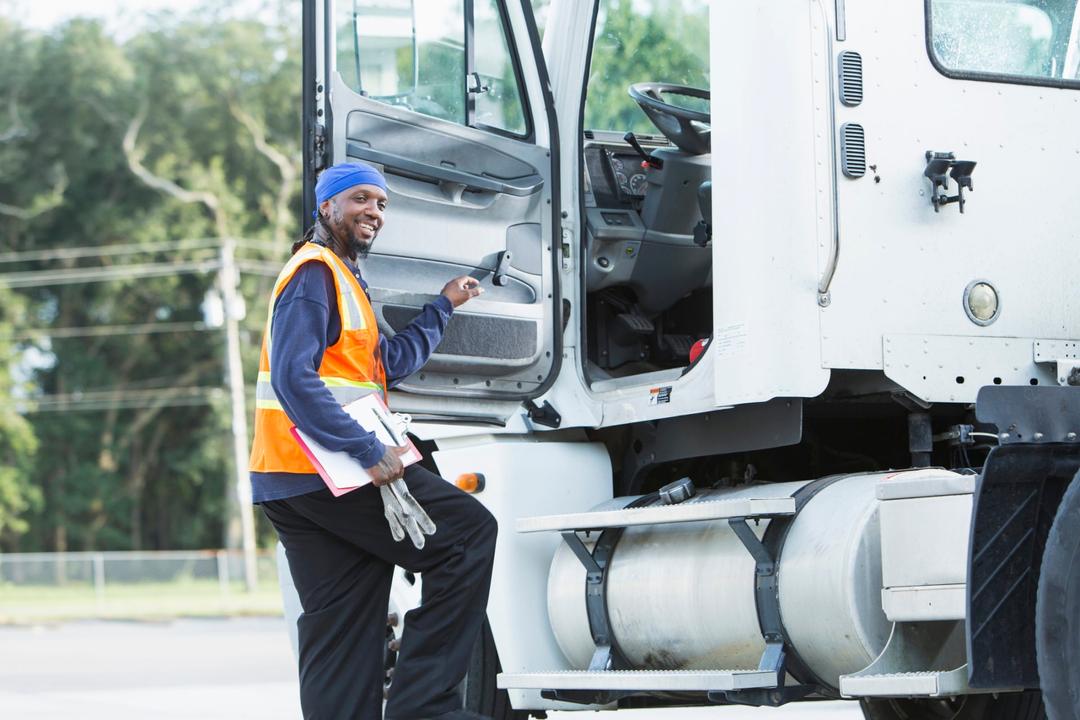
Truck drivers are some of the most resilient workers in the country. Long-haul trips, maintaining compliance with the FMCSA, and dealing with poor weather conditions and other drivers are all things truck drivers must deal with regularly. To top it off, truck drivers who are also owner-operators have additional tax requirements to consider.
Here is what you should know about truck driver taxes and tax deductions.
Do Owner-Operator Truck Drivers Pay Self-Employment Taxes?
As an owner-operator truck driver, you’ll have to pay self-employment taxes. Whether you’re an owner-operator or you own and operate your business individually, you’re a sole proprietor. This means that you’re responsible for self-employment taxes, and you’ll pay these taxes as estimated quarterly tax payments, which you’ll pay quarterly.
Accurate Record Keeping Is the Key to a Smooth Tax Season
One of the best ways to ensure a smooth tax season is to keep all of your records. You can implement four tips to keep your record keeping accurate for your truck driver taxes.
You’ll ensure your records are accurate by following these tips:
- Keep your receipts for all of your transactions
- Save your logbook and records
- Track expenses you can’t obtain with a receipt
Some of the most helpful documentation you’ll need is your:
- Insurance documentation
- IRS quarterly estimated tax payments
- Maintenance records
- Registration information
- Warranty information
The second thing to remember is that you’ll need to keep your records used to prepare your tax return for three years after the date you filed. While it’s not a requirement, it’s a good idea to keep essential documents and records for longer than needed in case of IRS audits.
To ensure your expenses meet IRS regulations, each expense must include the date, location, amount, and reason for each expense.
Finally, you may track your expenses which you can’t obtain with receipts. If it’s possible, write your expenses in a notebook or save a document on your computer or phone containing records of your expenses.
Common Tax Deductions for Owner-Operator Truck Drivers
As an owner-operator, you qualify for tax deductions for your work. To claim these deductions for your truck driver taxes, you’ll use actual costs instead of a standard mileage deduction.
There are ten common tax deductions available for owner-operator truck drivers:
- Cell phone plans: If you use your cell phone plan for both personal and work use, you’ll determine the percentage amount used for work and deduct that amount.
- Education: Educational expenses include truck driver training or other trainings needed to maintain your CDL.
- Equipment and tools: These could include routine maintenance expenses and other tools used for repairs.
- Fuel and travel expenses: Fuel costs, parking fees, tolls, and hotel expenses incurred throughout your travels are deductible.
- Insurance premiums: Both vehicle (commercial auto liability, property damage insurance, or business interruption or loss of cargo insurance) and health insurance premiums may be deducted.
- Meal expenses: Meal expenses only apply to long-haul or regional drivers. Drivers following hours of service protocols can claim up to 80% of their meals purchased.
- Medical expenses: Medical fitness exams are deductible as business expenses, but medical exams or medical treatments not related to work are deductible as personal expenses.
- Occupational and excise taxes
- Sleeper berth expenses: Bedding, curtains, coffee supplies, first-aid supplies, and mini-fridges could all qualify for sleeper berth expenses.
- Truck maintenance and repairs
For a more thorough guide to owner-operator truck driver tax deductions, check out this blog post.
Expert Advice for Owner-Operator Truck Driver Taxes
As an owner-operator, filing and managing your taxes are part of your job. Working with a tax professional ensures your taxes get filed accurately and on time. Furthermore, they’ll ensure that you take advantage of all of the available tax deductions — making sure you don’t leave your hard-earned money on the table.
With the tax season arriving quickly, now is the time to start thinking about your taxes. Work with the tax experts at 1-800Accountant for help with your truck driver taxes and tax deductions.
This post is to be used for informational purposes only and does not constitute legal, business, or tax advice. Each person should consult his or her own attorney, business advisor, or tax advisor with respect to matters referenced in this post. 1-800Accountant assumes no liability for actions taken in reliance upon the information contained herein.
